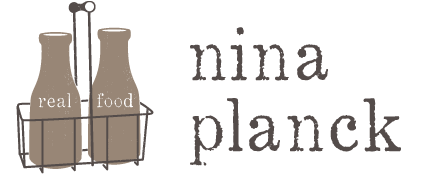New York Times Op-ed: A Choice With Definite Risks
This op-ed by Nina Planck was published in the New York Times on April 17, 2012.
They say everything can be replaced.
—Bob Dylan
The modern American is fierce about his or her right to choose a particular “lifestyle.” So it is with vegan diets for children. In 2007, when I argued in The New York Times that a diet consisting exclusively of plants was inadequate for babies and children, the response was dramatic, and at times, even vicious. I believe that babies and children require a better diet. The American Dietetic Association asserts that a “well-planned” vegan diet — by which the experts mean one with many synthetic supplements — can be adequate for babies; I disagree.
Nature created humans as omnivores. We have the physical equipment for omnivory, from teeth to guts. We have extraordinary needs for nutrients not found in plants. They include fully-formed vitamins A and D, vitamin B12, and the long-chain fatty acids found in fish.
The quantity, quality and bio-availability of other nutrients, such as calcium and protein, are superior when consumed from animal rather than plant sources. It’s quite possible to thrive on a diet including high-quality dairy and eggs — many populations do — but a diet of plants alone is fit only for herbivores.
For babies and children, whose nutritional needs are extraordinary, the risks are definite and scary. The breast milk of vegetarian and vegan mothers is dramatically lower in a critical brain fat, DHA, than the milk of an omnivorous mother and contains less usable vitamin B6. Carnitine, a vital amino acid found in meat and breast milk, is nicknamed “vitamin Bb” because babies need so much of it…
The greatest error of modern industrial life, which celebrates the lab and technology, is our love affair with the facsimile. It is time to face the music. Some things cannot be replaced. Real food is one.
You may choose to be a vegan. Your baby doesn’t have that luxury. Let her grow up omnivorous and healthy. Then watch her exercise her own freedom of choice with justifiable pride.
